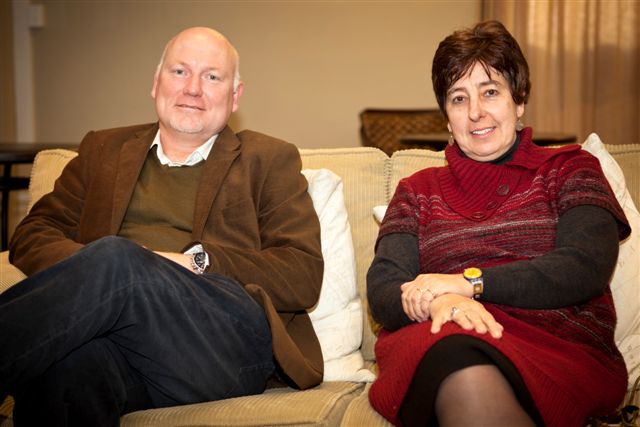
The Media and Citizenship: Between marginalisation and participation, one of four Mellon funded research and postgraduate education focus areas recently launched by the Faculty of Humanities at Rhodes, will critically examine the ways in which the South African media realise their potential to contribute to the (re)construction and (re)negotiation of citizenship. The project seeks to establish to what extent media facilitate democratic participation, or may contribute to further marginalisation of citizens.
According to Professors Herman Wasserman and Anthea Garman, who will lead the research in this focus area, the media are often seen as central to democracy because they provide the information citizens need to perform their democratic roles and duties, and serve as a space where citizens can deliberate to form public opinion and influence policy. However, the link between media and citizenship in post-apartheid South Africa is complicated by the fact that the very notion of citizenship has been contested. While democratisation has restored the legal and political rights to citizenship denied to the majority under apartheid, the continued exclusions from economic equality and the realisation of social empowerment have resulted in a widespread experience of marginalisation from the public sphere.
The project aims to establish how notions of media, citizenship and democracy are articulated in actually existing social contexts and thus contribute to a better understanding of how media could contribute to the improvement of democratic participation.
By assessing, through empirical work, the extent to which media contribute to ‘actually existing’ democratic practices, this project will deliver data that may be used by the media, civil society groups and policymakers to improve the level of participation in the public sphere.
The coupling of this focus on participation in public debate with a focus on the uses of media in everyday life, will add depth to our understanding of how media are adopted and adapted to make meaning around citizenship and democracy in the overlaps between the public and the domestic sphere. Such understanding may enable media institutions to more effectively articulate the needs of citizens and enhance their experience of democratic participation.
The research will be conducted by a research team consisting of staff members and students in the School of Journalism & Media Studies. For the fieldwork, the project will draw on the School’s extensive network of contacts in the media industry, civil society and local community.
This research project will be integrated into teaching and research at the postgraduate level, and it is further hoped that it will articulate with other research projects (such as the Sanpad project “A baseline study of youth identity, the media and the public sphere in South Africa” and the Knight Foundation project into citizen journalism in Grahamstown) and with other centres in the School such as Highway Africa, the Sol Plaatje Media Leadership Institute and the Centre for Economic Journalism in Africa.
As one of the leading institutions in South Africa and Africa in teaching journalism and engaging with practitioners and other teachers on journalism educational issues, the School of Journalism & Media Studies is building a reputation for Rhodes as an institution that makes a significant contribution to the big debates in South Africa and Africa around journalism, media, education and democracy.
Story by Kerry Peter
Picture by Sophie Smith
